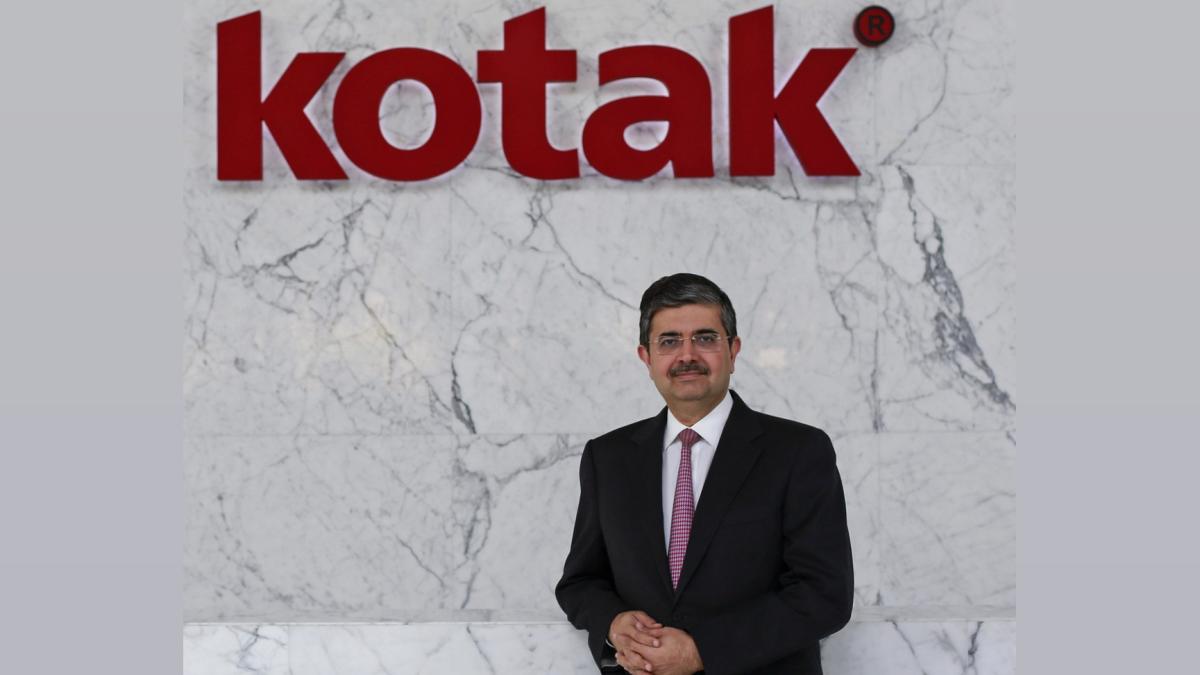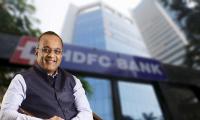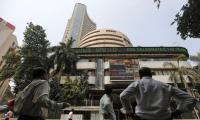India Transforms into a Nation of Investors: Uday Kotak
Leading banker Uday Kotak highlights India's shift from a saver to an investor nation, emphasizing the role of mutual funds and equity markets. He also discusses challenges facing the banking sector and the importance of capital market growth for sustainable economic development.

Photograph: Danish Siddiqui/Reuters
New Delhi, Dec 29 (PTI) India has transformed from being a nation of savers to investors with more and more people parking their surplus fund in mutual fund and equity market, leading banker and former MD of Kotak Mahindra Bank Uday Kotak said on Friday.
In the early 80s, the Indian saver had low confidence in financial assets versus gold and land. Slowly the saver moved some part to bank deposits, UTI and LIC, Kotak said in a post on X.
Even in the 90s, he said, investing in equities was considered 'speculative'.
"Hence companies looking for capital went to the foreign institutional investor (FII). FIIs saw potential and bought into companies while the Indian saver stayed away," he said.
Companies raised capital through the less known Luxembourg stock exchange, he said, adding, India's capital market was being exported.
"Some of us highlighted this phenomenon to SEBI. That began the private placement market (QIP) in early 2000s. Hence FIIs could also buy on Indian markets. The Indian saver's interest in markets improved after the global financial crisis," he said.
That saver is now savouring the joys of investing as mutual fund platforms, cash equities and derivatives markets, insurance funds, global private equity in India, other platforms like AIFs, lower tax regime for equity, have all converted from a saver to an investor, he said.
Thus, India has transformed from being a nation of savers to investors and the tussle between the saver/borrower and issuer/investor model is underway.
Sharing his thoughts on sustaining growth story, Kotak said as savers become investors the banking sector faces challenges on its deposits and cost of funds.
"The large corporate sector has to meaningfully move to capital markets (debt and equity) and away from banks. Banks will become distributors of corporate debt rather than storage houses. They will need to penetrate mid-sized corporates, MSMEs and consumers," he said.
Many investors have joined post-Covid and they have mainly seen upside, he said.
"While the situation is not comparable at present, we need to keep Japan of the 80s at the back of our mind. Its Nikkei Index peak was 1989. 34 years later with near zero interest rates, the Nikkei is still below its 1989 peak. We must avoid bubbles through policy, regulation, education, and supply of quality paper. Companies should raise equity at lower cost of capital for productive use," he said.
Double taxation on dividends needs relook, he demanded, saying a shareholder is like a partner.
There is no additional tax when money is moved from the partnership to the partners capital account and the same principle applies to shareholders, he said.
"While we must avoid tax arbitrage in debt, unless debt markets grow it will be a one legged race," he said.
The current gap on highest marginal tax rate between debt and equity of 39 per cent and 10 per cent is perhaps too wide.
"We should avoid a retrospective tax and regulatory regime. We will need to balance developmental and regulatory role," he added.
Low-cost leverage through derivatives can distort financial markets and this needs attention, he suggested.
The other two areas which need urgent focus for India's aspiration, Kotak said they are acquisition financing and streamlining of the Insolvency and Bankruptcy Code and NCLT process.
As India aspires, the financial sector will be the key engine for delivery, he said, adding, impact of technology is a separate subject of discussion for a future date.
"The saver/ borrower and the issuer/investor models will coexist. It is time for a holistic financial sector view," he said.
In the early 80s, the Indian saver had low confidence in financial assets versus gold and land. Slowly the saver moved some part to bank deposits, UTI and LIC, Kotak said in a post on X.
Even in the 90s, he said, investing in equities was considered 'speculative'.
"Hence companies looking for capital went to the foreign institutional investor (FII). FIIs saw potential and bought into companies while the Indian saver stayed away," he said.
Companies raised capital through the less known Luxembourg stock exchange, he said, adding, India's capital market was being exported.
"Some of us highlighted this phenomenon to SEBI. That began the private placement market (QIP) in early 2000s. Hence FIIs could also buy on Indian markets. The Indian saver's interest in markets improved after the global financial crisis," he said.
That saver is now savouring the joys of investing as mutual fund platforms, cash equities and derivatives markets, insurance funds, global private equity in India, other platforms like AIFs, lower tax regime for equity, have all converted from a saver to an investor, he said.
Thus, India has transformed from being a nation of savers to investors and the tussle between the saver/borrower and issuer/investor model is underway.
Sharing his thoughts on sustaining growth story, Kotak said as savers become investors the banking sector faces challenges on its deposits and cost of funds.
"The large corporate sector has to meaningfully move to capital markets (debt and equity) and away from banks. Banks will become distributors of corporate debt rather than storage houses. They will need to penetrate mid-sized corporates, MSMEs and consumers," he said.
Many investors have joined post-Covid and they have mainly seen upside, he said.
"While the situation is not comparable at present, we need to keep Japan of the 80s at the back of our mind. Its Nikkei Index peak was 1989. 34 years later with near zero interest rates, the Nikkei is still below its 1989 peak. We must avoid bubbles through policy, regulation, education, and supply of quality paper. Companies should raise equity at lower cost of capital for productive use," he said.
Double taxation on dividends needs relook, he demanded, saying a shareholder is like a partner.
There is no additional tax when money is moved from the partnership to the partners capital account and the same principle applies to shareholders, he said.
"While we must avoid tax arbitrage in debt, unless debt markets grow it will be a one legged race," he said.
The current gap on highest marginal tax rate between debt and equity of 39 per cent and 10 per cent is perhaps too wide.
"We should avoid a retrospective tax and regulatory regime. We will need to balance developmental and regulatory role," he added.
Low-cost leverage through derivatives can distort financial markets and this needs attention, he suggested.
The other two areas which need urgent focus for India's aspiration, Kotak said they are acquisition financing and streamlining of the Insolvency and Bankruptcy Code and NCLT process.
As India aspires, the financial sector will be the key engine for delivery, he said, adding, impact of technology is a separate subject of discussion for a future date.
"The saver/ borrower and the issuer/investor models will coexist. It is time for a holistic financial sector view," he said.
You May Like To Read
TODAY'S MOST TRADED COMPANIES
- Company Name
- Price
- Volume
- Vodafone-Idea-L
- 11.65 (+ 3.56)
- 106772451
- Alstone-Textiles
- 0.28 ( -3.45)
- 44187760
- Mangalam-Industrial
- 0.88 ( -2.22)
- 39177573
- Sunshine-Capital
- 0.27 (+ 3.85)
- 35956340
- GMR-Airports
- 104.40 (+ 6.37)
- 30453005





